Overview
The Research Committee of the Pre-Hospital Emergency Care Council was established in November 2021. Its Terms of Reference, Aim, Objectives and Membership are set out below.
To date, the Committee has commissioned an array of Research Projects, namely:
-
A review of existing Pre-Hospital Emergency Care Research in Ireland from 2000 to 2022.
- Development of a strategy for the PHECC Research Committee: The Future of Paramedicine Research in Ireland: A Delphi Study.
- Consultation exercise with stakeholders other than paramedicine professionals [EMTs, Paramedics, Advanced Paramedics], to inform the research priorities for Pre-Hospital Emergency Care, the PHECC Research Committee and the Future of Paramedicine Research in Ireland.
- Review of emergency ambulance crewing model.
- Review of patient handover times at hospital emergency departments in other jurisdictions.
In November 2023, the Committee held its inaugural Pre-Hospital Emergency Care Research Conference. The videos of presentations and pictures of the event can be found here.
In 2024, the Committee hope to:
-
Launch the Research Strategy for Pre-Hospital Emergency Care, the PHECC Research Committee and the future of Paramedicine Research in Ireland.
- Develop in house expertise in research through a Research Officer position within PHECC.
- Develop a policy and pathway for research funding support: both PhD and other projects.
- Build collaborative relationships with external stakeholders to support research.
- Continue to engage, collaborate and build relationships with stakeholders to support Pre-Hospital Emergency Care Research.
Terms of Reference – PHECC Research Committee
SI 109, of 2000, sets out under Section 4, (m), below:
(m) engage in research into pre-hospital emergency care, especially in regard to emerging technology and the education and training of emergency medical technicians (EMT, P, AP, SP) including the formulation of experimental curricula and the evaluation of existing courses and assessment and examination procedures
Aim
Focused research is supporting the progression of pre-hospital emergency care.
PHECC will continue to inform its work and that of others, as well as to advance the understanding and practice of pre-hospital care, with the knowledge and insights it gleans from targeted research. We will undertake research autonomously, with academic partners and with our service providers. In particular, the Council will focus on tailored research to inform our masterplan for education and to demonstrate the role and value of paramedicine within the Irish health system.
Objectives
Develop research capability and capacity, both in-house and through collaboration with partners and research networks, to validate the value and outcomes from prehospital emergency care and explore how the sector can best contribute to patient outcomes within the health ecosystem.
Establish a strategically aligned programme of research that gathers information and provides insight to support and inform best practice and relevant emerging legislation.
Advance clinical practice and promote excellence in pre-hospital care through sharing research findings and insights with our peer community and relevant cohorts.
Outcomes
The research evidence and insights generated and share are supporting and strengthening pre- hospital care and enhancing patient safety.
Specifics
The Research Committee shall advise, recommend, and guide Council in all matters pertaining to research matters. This shall include:
-
Establish a policy for strategy and clear direction for PHECC research.
- Identifying and guide areas suitable for further research.
- Conduct/engage in a review of research already completed/ongoing.
- With the Executive, to establish a process for electing projects suitable for research / further study in relation to the practice of pre-hospital emergency care.
- To elect projects suitable for research / further study in relation to the practice of pre-hospital emergency care in accordance with the PHECC Research Strategy.
- Support collaborative research through funding bursaries/scholarships.
- Acknowledge research that operates under governance of an Institution or groups external to PHECC.
Membership
All members have:
-
Experience in managing, developing and overseeing research programmes.
- High level expertise Nationally and Internationally in research programmes.
- An interest in pre-hospital care or healthcare.
- Experience and a proven track record in health services management research.
- Experience and a proven track record in supervising, conducting and critically appraising research.
P.H.E.C.C. Research Committee
Patrick Fleming
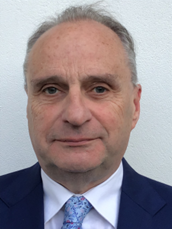
Patrick Fleming is the former Chief Fire Officer of Dublin Fire Brigade and Emergency Ambulance Service. Patrick is a Chartered Engineer and has an honours degree in Civil Engineering from University College Galway, an M Eng Sc degree from University College Dublin and an MBA from the University of Limerick.
He has extensive experience of policy development, implementation and management in the public service at both central and local government levels. Patrick has been a Council member of the Pre Hospital Emergency Care Council since 2016 and currently chairs the Research Committee and the Finance, Risk and Audit Committee.
Professor John Browne
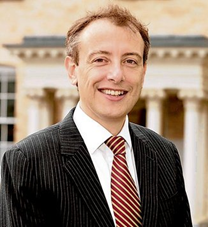
Professor John Browne is a health services researcher with a professional background in health outcome measurement. After completing his doctorate at Trinity College Dublin, he worked at the Health Services Research Unit of the London School of Hygiene and Tropical Medicine (LSHTM) from 1998 to 2008, where he oversaw the development of the NHS Patient Reported Outcome Measures (PROMs) programme and the acute care clinical guidelines programme for the National Institute for Clinical Excellence. He was the Principal Investigator on the 'SIREN' programme (Study of the Implementation of Reconfiguration on Urgent and Emergency Care Networks) which investigated the impact of emergency care centralisation on patient outcomes in Ireland. Professor Browne is a Senior Editor at BMJ Quality and Safety.
Dr Siobhán Masterson

Siobhán Masterson PhD is the National Ambulance Service General Manager for Clinical Strategy & Evaluation. Prior to joining NAS, she implemented and managed the national Out-of-Hospital Cardiac Arrest (OHCA) Registry in University of Galway and was subsequently the Project Manager for the development of the national OHCA strategy. Siobhán has been Primary Investigator on three Health Research Board projects and has authored over 50 peer-reviewed publications in prehospital research in a range of topics including resuscitation, patient safety, and alternative care pathways. She is a Fellow of the European Resuscitation Council and a member of the International Liaison Committee on Resuscitation (ILCOR) (Basic Life Support Task Force). Siobhán is a recent graduate of the RCPI Diploma in Leadership and Quality in Healthcare and has a special interest in clinical quality improvement in the prehospital setting.
Professor Conor Deasy
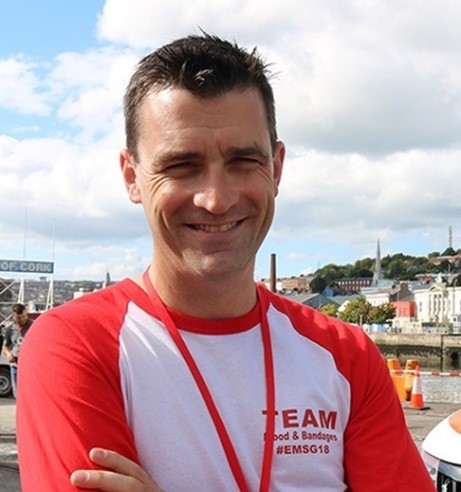
Conor is the Professor of Emergency Medicine, University College Cork and Clinical Director, Emergency and Acute Care working at Cork University Hospital (CUH).
He also holds the following roles:
-
Clinical Lead for the South Trauma Network
- Clinical Lead for National Office of Clinical Audit’s (NOCA) Major Trauma Audit in Ireland
- Examiner for the Royal College of Emergency Medicine
- Associate Adjunct Professor at the School of Primary Care, Monash University, Australia.
- Deputy Medical Director of the National Ambulance Service from 2014 – 2020
- President of the Irish Association for Emergency Medicine.
Conor completed his higher specialist training program in Emergency Medicine in Ireland before moving to Australia where he worked as a Consultant in Emergency Medicine at the Alfred Emergency and Trauma Centre, Melbourne. While there he completed a PhD at the Department of Epidemiology and Preventive Medicine, Monash University in collaboration with Ambulance Victoria. To date Conor has published across the domains of patient safety, quality of care, systems of care, procedural sedation, trauma care as well as out of hospital cardiac arrest.
Dr Brian Power
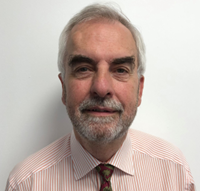
Brian is an Advanced Paramedic and retired from the Pre-Hospital Emergency Care Council (PHECC) in 2020. He has been involved professionally with pre-hospital emergency care provision in Ireland for over 40 years. Commencing as an ambulance attendant in 1979 Dr. Power served in ambulance control, Ambulance Aid Instructor in the National Ambulance Training School and Operational Ambulance Officer prior to being appointed as a Programme Development Officer when PHECC was established and remained there until his retirement. In 1991 Dr Power developed the AED training course for the Irish ambulance services and travelled the country rolling out AED training. Dr Power was the Programme Manager for the PHECC Medical Advisory Committee and the EMS Priority Dispatch Committee. He is currently a member of the PHECC Research Committee. He continues to be involved as a volunteer with Order of Malta Ireland which he has served for over 54 years.
His academic career commenced with the Licentiate of the Ambulance Service Institute (UK) in 1981. This was followed by several programmes including: Certificate in Supervisory Management, UK Ambulance Aid Instructor Qualifying course, Diploma in Training and Development, Fellow of the Ambulance Service Institute (UK), UK paramedic course, Master of Business Administration (MBA) University of Strathclyde, Master of Science (MSc) at University College Dublin (UCD) and finally the Doctor of Philosophy was awarded by UCD. Dr Power completed the following proprietary courses: Advanced Cardiac Life Support, Pre-Hospital Trauma Life Support, Geriatric Education for Emergency Medical Services, Wilderness Emergency Medical Technician, Paediatric Education for Pre-hospital Providers, Major Emergency Medical Management and Support, Paediatric Advanced Life Support and Neonatal Resuscitation. He became an instructor for most of these proprietary courses. Dr Power was appointed a PHECC Facilitator, and he completed the first Advanced Paramedic programme in Ireland in 2006.
Professor Jan Sorensen

Jan is a professor of health economics and the director of the Healthcare Outcome Research Centre, School of Population Health, RCSI University of Medicine and Health Sciences, Dublin. His research includes economic analyses of pre-hospital services, and he is currently part of the team evaluating the Beaumont Pathfinder team. He has extensive research experience with outcome research including analysis of health-related quality of life, resource use and costs based on either clinical trials or as modelling studies.
Ray Carney

Ray is the Clinical Programme Manager with the Pre-Hospital Emergency Care Council and took up the position in 2021 following a twenty-year career with Dublin Fire Brigade as a firefighter and Advanced Paramedic.
Ray started his EMS career with the former Eastern Health Board Ambulance Service and went on to develop as a Paramedic, AP and completed the MSc in EMS with UCD.
Brendan Cawley
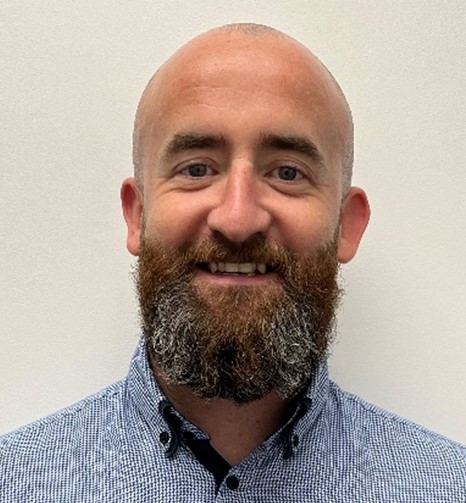
Brendan is the Programme Manager for Clinical Information, Education, Examinations and Research with the Pre-Hospital Emergency Care Council.
His background is in Education, both second and third level.
He has a BTech in Education and an M.Ed in Leadership.
Prior to joining PHECC in January 2020, he was a post-primary teacher and was seconded to Microsoft Education (Ireland), as a Teacher Engagement Manager and Learning Consultant.
Brendan has been involved in numerous education research projects throughout his career.